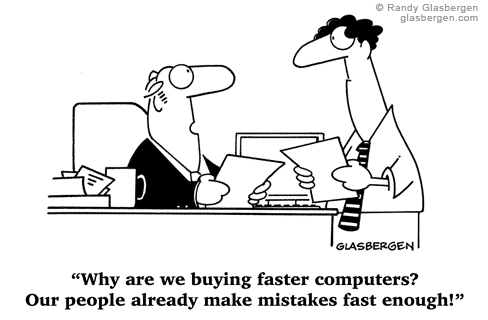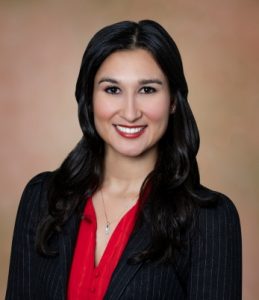Have you given up and now accept mediocrity as a given? Or are you ready to succeed in your professional career? Read the following interview with Monica Guzman, an executive coach and motivational speaker, and learn how to stop playing the victim and do whatever is necessary to rise above the negative energy—there are no excuses!
Please tell us about your childhood; where did you grow up?
I grew up in a single parent household in Newark, NJ. My mother raised me to believe that there was literally nothing I couldn’t do. There was a great focus on education, and I spent a great deal of time reading and enjoying my childhood. I was involved in the debate team and found a passion for acting and other creative forms of expression.
If you lived in another country, was the transition to the US difficult?
I moved to the United States at the age of three. The only difficult piece was not having my family around as all my aunts, uncles, cousins, etc. resided in South America, so my mother and I were alone in this country. We did not return there until I was seventeen years old.
Did you go to college, and if so, was being a Hispanic an advantage or a disadvantage?
Yes. I attended William Paterson University for undergrad and Temple University for graduate school. I would not say that being Hispanic was an advantage or a disadvantage; it was simply another piece of my identity. I worked just as hard as anyone else—if not harder—during my college years for my success not as a Hispanic person but as “Monica.”
What is your job title and what industry do you work in?
I am an executive coach and motivational speaker. I help everyone, from students to CEOs, achieve professional excellence. I am obsessed with leadership development and have devoted a great deal of my time helping transform managers into LEADERS.
Can you please tell us about your career path—i.e., how did you get to your current position?
I began my career as a Therapist/Clinician working with individuals, families, and couples. I found a passion for speaking and teaching others, so I developed training programs for colleagues and supervisors. Through years of observation and self-study, I was able to identify patterns in effective leadership and team building. This inspired me to develop my Wheel of Excellence model, a blueprint for achieving professional success, which focuses on personal branding, communication, attitude, and relationships. The connection between my background in counseling psychology, passion for business, and ability to inspire crowds of people came together to help me build a profitable executive coach and motivational speaker business.
Please describe the things you do on a typical day.
On a typical day, I get up at 5:19 am (yes, exactly 5:19) and prepare for my day. My day consists of executive coaching sessions, responding to client requests, designing business retreats for clients, writing speeches for various events, etc. I try to include some time for the gym, some reading, and organizing of some sort. In the evening, I always prepare for the next day in advance. Of course, I reserve some time for loved ones.
How do you explain career coaching to someone who you think may benefit from it?
Career coaching means having someone to mentor and support you to ensure your professional success. It means having someone to guide you along your journey by helping you develop the hard and soft skills necessary for success in the workplace. Career coaching can include development in such areas as public speaking, time management, personal branding, office politics, organizational as well as presentation skills, conflict resolution, and much more. It is an opportunity for honest, objective feedback that will help you get to the next level of your career and industry.
It seems people must apply your recommendations on their own to be successful; how can they keep themselves motivated?
My clients help keep themselves motivated by developing a winning attitude. This means not making excuses and always striving for excellence instead of mediocrity. In other words, you must hold yourself accountable for your decisions and tell yourself “no” when needed. It is also helpful to surround yourself with people who are going to inspire you as well as keep you motivated. To do this, you must identify and maintain relationships that are positive and helpful for your career. These people should want the best for you and always be supportive, honest, and inspiring.
In what situations or areas have the people you have trained experienced more difficulty?
Some people experience difficulty in taking feedback from others. For some individuals, it’s “easier” to do what they have always done, even if it hasn’t worked for them. They remain stuck because they don’t follow through on assignments or take action on the recommendations provided. These individuals are not ready for coaching.
What about you? What’s the most challenging moment you’ve experienced?
Just like anyone else, I too have experienced loss and trauma. This has resulted in feelings of apprehension, anxiety, and anger. I recognized that playing the “victim” to my life is pointless, so I quickly picked myself up and did whatever I had to do rise above the negative energy. I worked with a coach of my own and followed through on my plan of action—no excuses.
What did you learn the hard way in your career and how did that happen?
I learned the hard way that trust is something to be taken very seriously in business. Early in my career, I trusted the wrong people, and this taught me to be mindful of boundaries in the workplace.
What don’t they teach in school that would’ve been helpful to you?
Schools don’t teach about office politics and certainly don’t place enough focus on communication or public speaking. Moreover, the educational system completely ignores not only the importance of building your brand but also its implementation to ensure success in your professional career.

What makes me feel great is building people up! When I see that my executive coach clients are making changes and feeling good about themselves, I am on cloud nine. I feel wonderful when, as a result of our working together, clients are able to change their attitude, build their brand, increase their confidence, or achieve their goals. When I am speaking in front of a crowd and I see their faces light up in response to my message, I know I am in the right field.
When nothing seems to go right, what kind of snafus do you handle and what do you dislike the most?
I dislike mediocrity, and I have trouble working with those who make excuses for themselves or behave as “victims” of their circumstances.
How stressful is your job?
My job is not stressful because I love what I do!
Are you able to maintain a comfortable or healthy work-life balance?
Yes, I am. This does take planning, of course, and a clear assessment of my values and priorities in life.
What’s the most rewarding moment you’ve experienced in your career?
I am rewarded every time a client’s life improves as a result of our work. I find it extremely gratifying when a client is able to make changes in his life based on what we have created together through our business relationship. Knowing I have helped to make someone’s business or professional brand stronger is amazing.
What education and skills do you need to get hired and succeed in this field?
To work as an executive coach, I recommend having a background in either business or counseling. “People skills” are very important in this field and necessary for working with clients across backgrounds and industries. One may choose to become certified through a number of associations and professional organizations.
What would you tell a friend considering your line of work?
I would tell a friend to only do this work if he or she is passionate about helping others and is willing to put the time and energy needed to build the executive coach and motivational speaker business.





 Please describe the things you do on a typical day.
Please describe the things you do on a typical day.
